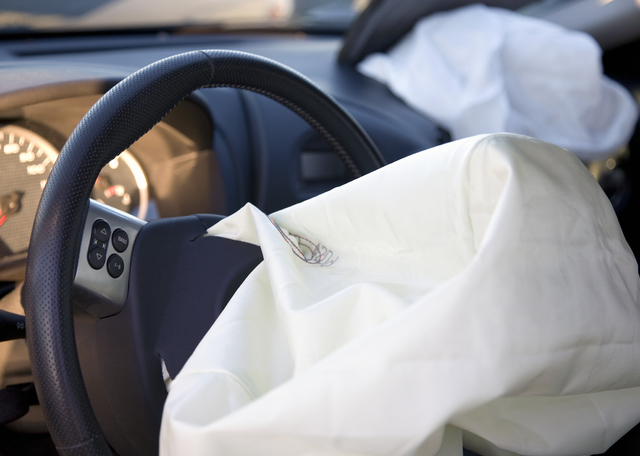Why is the Takata air bag recall taking so long?

An acquaintance brought her Honda in for an oil change. She casually asked how long it was going to take to get the recalled air bag replaced. She was shocked to find out there is a six-month backlog.
That begs the question: Why is it taking so long for the Takata air bag recalls? The simple answer is the sheer volume that need to be replaced. The National Highway Transportation Safety Administration reports, as of May 20, 8.4 million air bags have been recalled and replaced.
Honda has been doing a good job with the recall. As of May 20, 5.7 million Takata air bags in Honda vehicles have been replaced. That represents 57.1 percent of the Hondas that need to be repaired. It also accounts for two-thirds of all the repairs done to date.
But there are still, in NHTSA’s words, tens of millions that need to be replaced. A conservative estimate by most accounts is another 50 million. That number explains why the backlog is six months.
And surprisingly, that’s a good number. NHTSA said earlier in May the wait could extend until December 2019. That six-month wait could suddenly turn into three years for some people.
Who might those people be? According to NHTSA, based on testing, field experience and research, older inflators in vehicles that have experienced prolonged exposure to hot and humid conditions pose a much greater risk of rupturing.
NHTSA says on its website it has ordered manufacturers to replace inflators in older vehicles that are most likely to have been exposed to hot and humid conditions first. Additional factors, such as whether the inflator is in a driver or passenger side air bag, factor into how a vehicle’s repair has been prioritized.
That’s right. Passenger air bags are not quite as high a priority. Of the 8.4 million air bags replaced so far, 42 percent have been passenger-side air bags. We live in a world of single drivers in cars. It makes more sense to fix that side first.
NHTSA has an excellent point to keep in mind. Don’t shut off your air bags under any conditions. As the agency points out on its website, NHTSA estimates that frontal air bags saved 2,400 lives in 2014 alone.
It is far more likely that, if you are involved in a crash, your air bag will perform properly and protect you than it will rupture and cause harm. An air bag that is purposely disabled has a 100 percent chance of failing to provide any protection in a crash.
By the way, ever wonder what the environmental impact of the Takata air bag recall might be? One company has.
Texas-based Quest Resource Management Group has developed a sustainable solution to address recalled air bags. Quest’s air bag recycling program will destroy the removed recalled air bags while reducing the dealership’s environmental footprint.
All of the Takata air bags that are recalled have to be destroyed so they don’t end as repair air bags on used cars. They contain hazardous material that has to be handled according to a kaleidoscope of federal, state and local laws.
That’s the under-reported element of the Takata air bag recall. Not only do dealers need to remove and replace them. They also have the legal responsibility of disposing of them. That’s a solution that also doesn’t happen overnight.